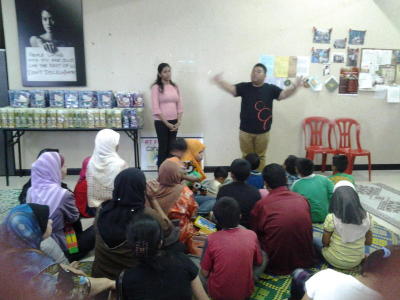IN the heart of Kuala Lumpur lies a safe haven for people living with HIV (PLHIV) and their family members.
Fourteen-year-old Hawa (not her real name) comes here after school and spends time with the volunteers.
“I feel happy to be here. I get to meet people, talk to them, learn how to use the computer and have my meals here.”
However, Hawa is reluctant to let her friends at school know about her after-school activities.
“Most of my peers have a negative perception about this place. I’ve heard them say this place is ‘dirty’ and that you could catch diseases from the people here.”
Hawa’s safe zone is the office for the Pink Triangle (PT) Foundation’s Positive Living programme in Jalan Tunku Abdul Rahman, KL.
The programme’s senior manager Mitch says: “Our foundation is an awareness centre that also provides peer support – both for the infected AND the affected.
“We help those living with HIV/AIDS with the information and resources they need to go on with their dailylives. We also reach out to those affected, such as family members and friends.”
Young and unafraid
Riezman, 14, is one of around 20 volunteer at PT Foundation. His move was inspired by his father, an NGO worker.
“Ever since I was a kid, I’ve been tagging along with my father to meet PLHIV. He helps them by giving them advice on their health and encourages them to continue feeling great about life.”
He recalled seeing the faces of PLHIV when they see him. “I follow my father to the hospitals to visit PLHIV and I’ll advise them to take their meds on time. They seemed very surprised to see me.”
However, Riezman also admitted he can’t let friends at school know what he does.
“Kids at school are very unkind towards these sort of things. I’d love to be able to talk to them, but they won’t listen and they will spread nasty rumours about me.”
Sadly, there are many children and young people around Riezman’s age who seek help from the Positive Living programme.
Full-time volunteer Rista Nurmashita, 25, has been helping at the PT Foundation for the past six years, and she spends most of her time helping the younger people there.
“We help to look after them as they come from broken homes and their parents have HIV,” said Rista, who believes the programme helps keep the kids out of trouble, though sometimes the trouble is society itself.
“It’s sad to say some people still have very low awareness on HIV/AIDS. I’ve spoken to a lot of youths here and they ask me questions like ‘Why do my friends leave me when they find out I have HIV’ and ‘Is it my fault?’”
Rista added some of the kids don’t even have HIV, and yet they are afraid of what people might think of them.
Discrimination kills
Mitch explained that people are afraid of those with HIV/AIDs simply because of the word “infectious”.
“I feel it’s unfair when people make statements about HIV/AIDS that are untrue. For example, some people tend to blame the LGBT community for ‘spreading the disease’. “When you make sweeping statements like that, you take away the plight and attention from those who are also affected by HIV/AIDs. We’re talking about women and children here as well,” said Mitch.
Rista said a lot of people still think they can get HIV/AIDS from being in the same room as a person with PLHIV.
“I’ve shared meals, hugged, laughed, joked and even went swimming with PLHIV. Yet, I’ve not contracted HIV/AIDS. And I’ve been volunteering here for the past six years!”
Hawa added that it makes her angry when she hears her friends spreading misconceptions about HIV/AIDS. “They look down on PLHIV and even my teacher said you can get HIV/AIDS from touching PLHIV.”
Yet, Hawa doesn’t have the courage to tell them off.
“Only one friend of mine knows that I come here and she’s been here as well. She said it’s a nice place, but we still keep it to ourselves.”
Rista hopes young people will take the time to educate themselves about HIV/AIDS.
“The virus doesn’t kill a person instantly and no, you can’t tell if a person has HIV/AIDS by looking at them. You want to
know what kills? Discrimination.” – By ANGELIN YEOH
For more information on the Positive Living programme and to find out how you can volunteer, log on to ptfmalaysia.org.


Tell us what you think!